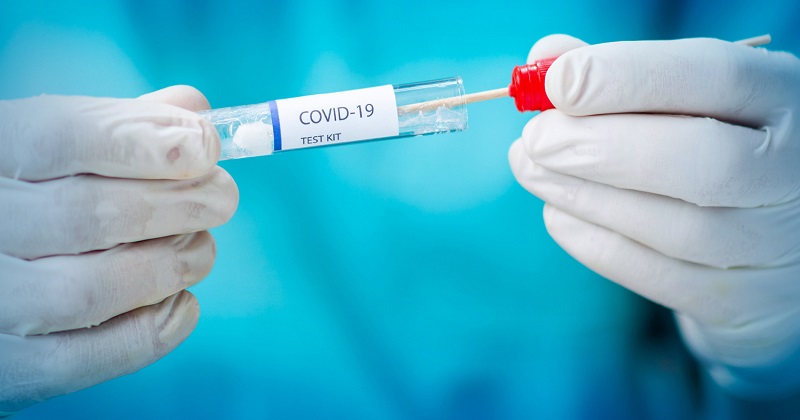
Covid-19 probably passed to humans from a bat via an intermediary animal, an international expert mission to China concluded in a report seen by AFP on Monday, while all but ruling out a laboratory leak.
But the report, drafted by World Health Organization-appointed international experts and their Chinese counterparts, offers no precise answers on how the new coronavirus jumped to humans.
Covid-19 has killed more than 2.7 million people worldwide in the 15 months since it began, forcing governments around the world to introduce restrictions that have battered the global economy.
Having met with world leaders, UN chief Antonio Guterres called for more debt relief for the poorest countries struggling with the economic fallout from the pandemic.
In the United States, there was good news about the progress of its vaccine roll-out, but President Joe Biden warned Americans that the battle was still far from over.
Mexico, meanwhile, released new figures on excess deaths which suggest its official coronavirus death toll – already the third highest in the world – is a massive underestimate.
‘NEW DEBT MECHANISM’
The specialist report on the origins of Covid has had a troubled birth, with publication delays adding to the hold-ups and diplomatic wrangling that plagued the WHO’s attempts to get experts into Wuhan – the city at the centre of the initial outbreak and they finally arrived on January 14, more than a year after the first cases surfaced.
Experts believe the SARS-CoV-2 virus that causes the Covid-19 disease originally came from bats: The report authors judged that the most likely situation was that it had made a direct leap to humans, while not ruling out other theories.
Beijing’s argument that the virus did not originate in China at all but was caused by frozen food was judged “possible” but very unlikely.
There are also claims promoted by former US President Donald Trump’s administration that the virus escaped from a research lab were judged “extremely unlikely”.
When, UN Secretary-General Guterres called for a “new debt mechanism” allowing such options as debt swaps, buy-backs and cancellations to help worse-off countries.
Talking in an online forum that involved dozens of world leaders, he said the pandemic has pushed the world to “the verge of a debt crisis” and required “urgent action”. “We need to change the rules,” he argued.
The pandemic had also “shattered the lives” of millions of women and girls and reversed progress towards gender equality, he said.
The war against Covid-19 is far from won
In the US, the White House said that 90 per cent of adults would be eligible for Covid shots within three weeks. But in a television address, Mr Biden himself warned the country – which has the world’s highest death toll – that “our work is far from over. The war against Covid-19 is far from won.” He condemned the rash behaviour of some people mocking social distancing measures.
A new government data from Mexico showed that it had registered 294,287 Covid-19 deaths – considerably more than previously recorded, and the third-highest in the world behind Brazil and the United States.
In Britain on Monday, as the government allowed small groups to gather and sports activities to resume, people rushed to pools and parks to enjoy newfound freedoms.
“We haven’t swum since January 5, so we were beyond excited to come back and get back into the water,” swimmer Jessica Walker told AFP at a London pool.
The country is also going to host an FA Cup semi-final football match in April as a test run for reopening large events.
Johnson & Johnson announced a deal with the African Vaccine Acquisition Trust (AVAT) to convey relief to that continent.
AVAT has an initial deal for 220 million doses of the single-shot vaccine with J&J subsidiary Janssen Pharmaceutica for delivery from the third quarter of this year.
With EU approval already in its hand, the US drugmaker also plans to begin European deliveries on April 19.
The bloc has lagged far behind Britain in its vaccine rollout.
Rising case numbers in Germany led Chancellor Angela Merkel to lambast the heads of the country’s regional states, including her own party colleagues, for failing to reintroduce restrictions.
In neighbouring France, President Emmanuel Macron may announce new measures this week after partial, regional shutdowns failed to keep the number of people in intensive care below its second-wave peak.
Also on Monday, the makers of the Russian-developed Sputnik V shot struck a deal with a Chinese firm to make more than 60 million doses, citing “rising demand” for the drug.

Post Your Comments